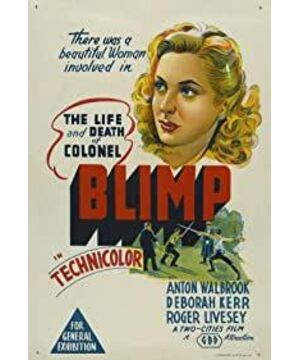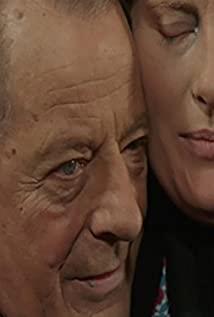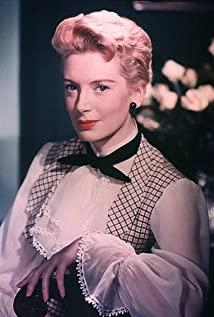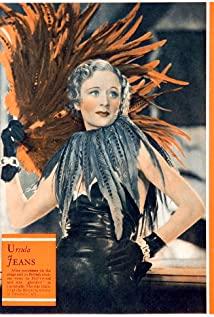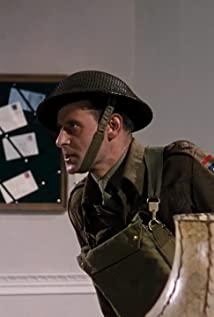This Powell-Pressburger's pièce de résistence, which eulogizes the quintessential “Englishness”, is a lavish moonshot on show, not least for its renowned Technicolor sumptuousness that transmogrifies studio-bound fakery into manufactured imagery of an eyeful. The titular Colonel Blimp, a beloved cartoon character created by David Low in 1934, is actually Major-General Clive Wynne-Candy (Livesey), whose life spans over three wars, the Boer War, WWI and WWII.
Starting in medias res, an elderly Clive (splendid makeup work, Livesey is unrecognizable under the masquerade), a senior commander in the Home Guard in WWII, scuffles in a Turkish bath with a whippersnapper Lieutenant Spud Wilson (McKenchnie), who is bent on pre-emptively starts the war which is declared to start at midnight, then with a magical touch (one must love Powell & Pressburger's simplistically fantastic masterstrokes like this), an extended flashback commences, retails the life of Clive from 1902.
One of the leitmotifs is his year-long insult with a German army officer Theo Krestchmar-Schuldorff (Walbrook), whose beginning is rather peculiar, Theo is selected to duel with Clive after the latters the Imperial German Army, both are injured and recuperated in the same nursing home, their friendship burgeons, and Theo falls in love with Edith Hunter (Kerr), a British girl living in Berlin for whom Clive realizes his feeling afterwards, and Kerr also embodies another two “ideal woman” in the subsequent two chapters, as Barbara, Clive's wife and Angela, Clive's MTC driver. To narrow down three important female characters into one ideal personification is a thorny maneuver, thankfully Kerr has the bent to differentiate one from another with enough moxie and modulation,and her telegenic comeliness is such a stunning boon to appreciate on the screen.
Meantime, Theo becomes a POW of WWI, and after Edith's death, comes to Britain when Nazism gets rampant in his homeland, finally reunites with Clive, it is Theo change of views that is pregnant with Powell & Pressburger's uncompromising anti-Nazi ire, and Walbrook, an almost expressionless performer, holds forth in an uninterrupted long take during which he lays bare his metamorphosis into a “good German”, his pent-up emotion brilliantly simmers under his salt-and-pepper, still dapper appearance, his empathetic restraint is such a revelation, by the same token, when Theo phlegmatically points up Clive's noble notion of war (and by extension, Britain's detrimental appeasement policy), Walbrook is a smashing sophisticate of rapier-like perception and gravitas.
As Clive, Livesey is comparatively less charismatic, especially he fails to bring off a youthful vitality as a stripling, but fares much better as the older man, seasoned by the age, Livesey's uniquely hoarse utterance also becomes less jarring, and being an immaculate gentleman of highest British criteria, Clive teeters on the brink of being a straight bore, but Livesey imbues him with as much animation as one can imagine, in the event, Clive earns our admiration not just for his integrity and grits (though hunting wild animals is such a demerit to today's eyes, a rhino, an elephant!), but the underlying spirit that the binds a great nation together, it is propaganda film of its most cogent and stirring order.
referential entries: Powell & Pressburger's A MATTER OF LIFE AND DEATH (1946, 7.5/10); BLACK NARCISSUS (1947, 8.3/10).
View more about The Life and Death of Colonel Blimp reviews


